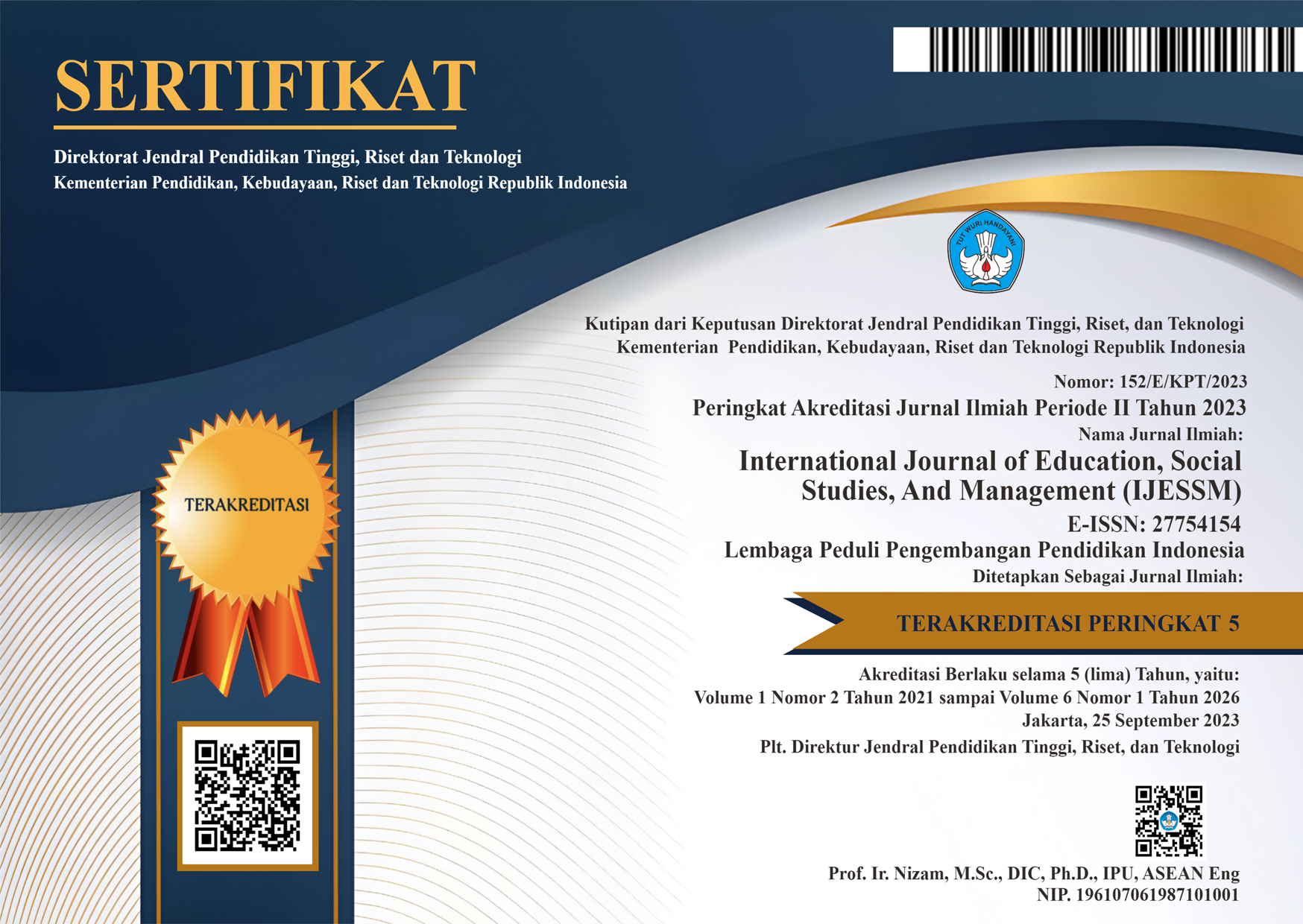The Constructivist Approach in Social Studies Learning to Develop Social Literacy in Elementary School Students
DOI:
https://doi.org/10.52121/ijessm.v5i3.883Keywords:
Constructivism, Social Studies Learning, Social Literacy, Elementary School, Project-Based Learning, Contextual Teaching and LearningAbstract
Social Studies (IPS) learning in elementary schools plays an important role not only in mastering knowledge, but also in fostering students' social attitudes and skills. However, practices that are still dominated by conventional methods often make students less engaged and result in low social literacy. This article aims to examine the application of the constructivism approach in IPS learning to develop the social literacy of elementary school students. The research was conducted through a literature study by reviewing relevant journals, proceedings, and books published between 2016 and 2024. The results of the study show that constructivism, especially through the Project-Based Learning (PjBL) model and contextual learning, can increase student engagement, motivation, and critical thinking skills. In addition, this approach strengthens social literacy by linking learning to real experiences, local culture, and the use of digital media. The role of teachers as facilitators is key in guiding students to construct knowledge through discussion, reflection, and collaboration. Thus, the constructivist approach has the potential to make social studies learning more meaningful while preparing students to become active, caring, and responsible citizens.
Downloads
Published
How to Cite
Issue
Section
License
Copyright (c) 2025 Fawwazatul Ulfa Lubis, Egidia Ramadani, Ratika Rahmi, Zahra Ainunnisa Harahap, Khairunnisa

This work is licensed under a Creative Commons Attribution 4.0 International License.

















